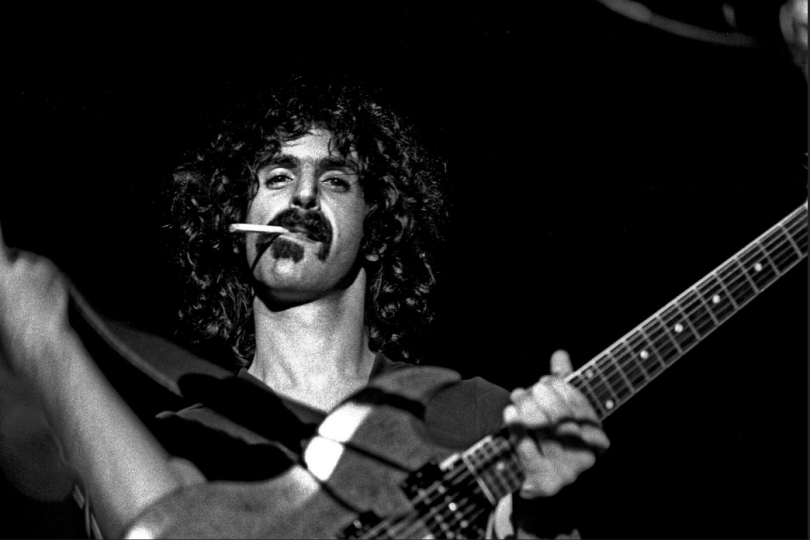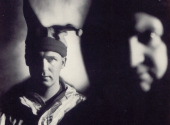
Milestones in Music History #7: Frank Zappa’s (In)famous Interviews. A Glance at the Modern Music Industry
Noise Music; Barret; Suicide; Velvet Underground; Desert Rock; the history of music is a perilous and yet appeasing path to walk. It has been, since the very origin of times, this powerful gift, and music is possibly the most evolving and sophisticated form of art, which affected culture, lifestyle, society, the history itself. The purpose of the Insounder series “Milestones in Music History” is to delight you with some of the pivotal moments in music, some acts, facts, and records which delineated and shaped the music for the years to come (actually as far as this series could go on). I have selected a few based on my personal path through music culture and the fact that I firmly believe these moments radically changed everything. This time we will analyze the concept of music and the way business entered into the music environment, through the words of one of the most creative and sensational musicians of our modern era, the artist who—probably more than any other—expressed bluntly and straightforwardly the relationship between music and business. Let’s dive into Frank Zappa’s view on the music industry.
Of the artists we’ve discussed so far here in our Milestones series, surely Zappa is the only one who doesn’t really need an introduction. Frank Zappa was an exceptional artist who could combine diversity and creativity in music, staging his performances as if they were a theatrical play, using visual aids and insertion of small sketches and parodies. He was one of the few—if not probably the only one of his times—to have understood how freedom of expression is fundamental in the music world. On the other hand, he also saw that artistic expression often clashes against the rules of the market, as an artist is almost never a businessman, and it seems almost impossible to set together art and business—especially in good terms.
Zappa was born on December 21st, 1940, in Baltimore, son of Italian immigrants. He first approached the music at the age of 12, learning drums and joining the high school marching band. He explored the Afro-American Rhythm and Blues and was fascinated with composers such as Stravinsky, Schonberg, and Webern, and in particular with the work of the experimental composer Edgard Varèse, a French-born artist who created asymmetric, dissonant composition, often without specific themes, conceiving his pieces as bodies of sound in space.
Frank started with the drums—initially only with some sticks—and he used to beat the drum sticks on the parents’ furniture, so his parents got him a snare drum. Some years later, he heard the guitar on a record, and he wanted to achieve all those sounds played on that instrument. So, at the age of 18, he accomplished to get, as he remembered in an interview, “one of those old archtop F-hole jobs. The strings were so high I couldn’t play chords on it, so I started playing lines right away. I didn’t learn to play chords until after about a year. In four weeks, I was playing shitty teenage leads. When I was 21 or 22, I got an electric guitar, but I couldn’t play it, and I had to start all over again”.
The guitar became his favorite instrument, but he dedicated all his musical career to the composition of his songs. In his teen years, he spent many hours in public libraries, learning about music and music theory. He was very interested in music composition, and first, he took some courses at school (in ’58 a summer course at Idyllwild School of Music and Arts, in ’59 a six-week music theory course at Chaffey College in Alta Loma), then in ’60 he began working with Paul Buff, record engineer, who was also developing his own music theory. The following year, he attended a composition course at Pomona College with Karl Kohn, composer and professor of music.
This musical education might have given Zappa the proper tools to shape his first compositions and develop his sound. Eventually, with the evolution of music in the seventies and eighties, and the changes made in the music business, mostly during the eighties, he also started to develop his own music theory and gave us an intuitive and foreseeing look at what the music industry was (and was gonna be in the times to come).
In an interview dated 1971, Zappa already expressed his worries concerning the future of American society and the little or no interest that media and politics showed in new generations. “It’s time for a revolution, but probably not in the terms that people imagine it,” that’s how he starts. The revolution he has in mind is not poor people with pitchforks fighting the rich, as he specifies, but something more modern and efficient. Best would be, in his vision, to have media and government replaced with “interested people, from the younger generation.”
Media is an object of attack, but according to Zappa, as his words and music showed it, the revolution has to come from within, from an infiltration. That is why on March 28th, 1986 he participated in CNN Crossfire, where he was “trialed” with questions on music censorship and business. “I don’t believe there is any word that needs to be suppressed,” Zappa claims, as words cannot harm, in any possible way, society. There should be no control over the lyrics, as there should be no government intention to advocate a song's ethical contradictions.
Zappa was attacked by three guys who provoked him, insulted him, and tried to put him down by explaining how the government should censor and check the words used in rock. “Kiss my ass!” was Zappa’s response. And ultimately, in 1987, he offered an exciting view on the music industry. In an interview on The Cutting Edge, a music program aired on MTV from March 1983 to September 1987: “Remember the sixties? That era that a lot of people have these glorious memories of?…they really weren’t that great, those years,” says Zappa. In the sixties music managers without a clue were judging what was good or not, so they started to hire “people with long hair” to get coffee or mail. Eventually, they decided to give those “hippies” the power of deciding for them.
The hipster phenomenon, which could be seen in direct line with those ex-hippies who started to have families and kids, and get old, and have leisure activities and comfortable condos, was born right for this contradiction. Nowadays, as Zappa shows, there is a guy, who has a certain (and in his vision, sophisticated) music taste, who would listen to a record and judge if it is good or not. Now, according to Zappa, the big fat manager with a cigar, completely ignorant in arts and music, was better than the hipster because he could not judge the art (or try to advise or even censor), so he could not put his mouth into the product. He was only judging the profitability of it. Nowadays, the presence of music “critics” deciding for the launch of a record or of an artist, makes the process tedious and controlled, surveilled. So, apparently, the sixties were better than today, at least for what regards freedom of expression and the possibility of emerging without many ethical compromises.
There could be a whole Milestones series dedicated to Frank Zappa. His music, his role in music, his genius, and his vision of the world, culture, society all changed our music and our imagination forever. He fought the system, but with class, eloquently contrasting the limits and the contradictions of our modern era. Zappa is and forever will be recognized as a pioneer of the freedom of thought and of expression in music (and arts in general). His legacy is everlasting, and his thoughts are very, very actual.
In the next episode, we will examine the progress of the music business through the subversive act of a band who decided to break on through the other side of conventions, opening the gates of the post-modern era of experimental music. We will dive into Radiohead’s more eclectic and revolutionary son, Kid A.
How far has the business infiltrated music today? Is it really necessary to talk about censorship in music or arts in general? How can music business be conducted properly, and in respect of the artist? Please leave us your opinion below in the comments!
If you have found an error or typo in the article, please let us know by e-mail info@insounder.org.





